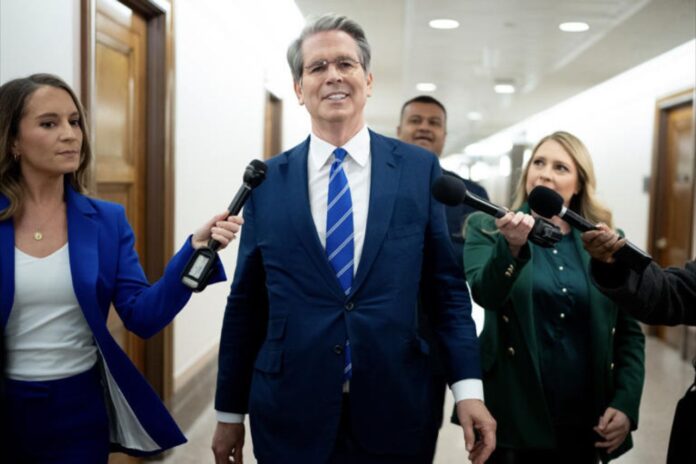During his Senate confirmation hearing, Scott Bessent, President-elect Donald Trump’s pick for Treasury Secretary, made it clear where he stands on the minimum wage issue. Bessent, a billionaire hedge fund manager, strongly opposed raising the federal minimum wage.
Senator Bernie Sanders (I-VT) took the opportunity to challenge Bessent, pointing out that over 22 million Americans earn less than $15 an hour, and almost 40 million make under $17. Sanders slammed the federal minimum wage of $7.25 an hour—a rate that hasn’t budged since 2009. He asked if Bessent would back efforts to increase it to a living wage.
Bessent’s response was blunt: “Senator, I believe the minimum wage is more of a statewide and regional issue.” In other words, he believes that raising wages should be up to individual states, not the federal government.
Sanders pressed further, “So you don’t think we should change the federal minimum wage of $7.25 an hour?”
Bessent’s simple answer was a firm, “No sir.”
This exchange highlights a key point of division in American politics: while Republicans, like Bessent, support letting states decide on wages, Democrats and labor advocates argue that raising the federal minimum wage is essential to tackle poverty and reduce income inequality.
It’s a debate that shows no signs of slowing down anytime soon.





